How to Reduce Bitterness in Collard Greens with Spices
Braised collard greens can be bitter, but the right spices can transform them into a flavorful dish. Here's exactly how to use spices to reduce bitterness, enhance sweetness, and create perfect collard greens every time. These techniques are based on professional cooking principles and tested in home kitchens.
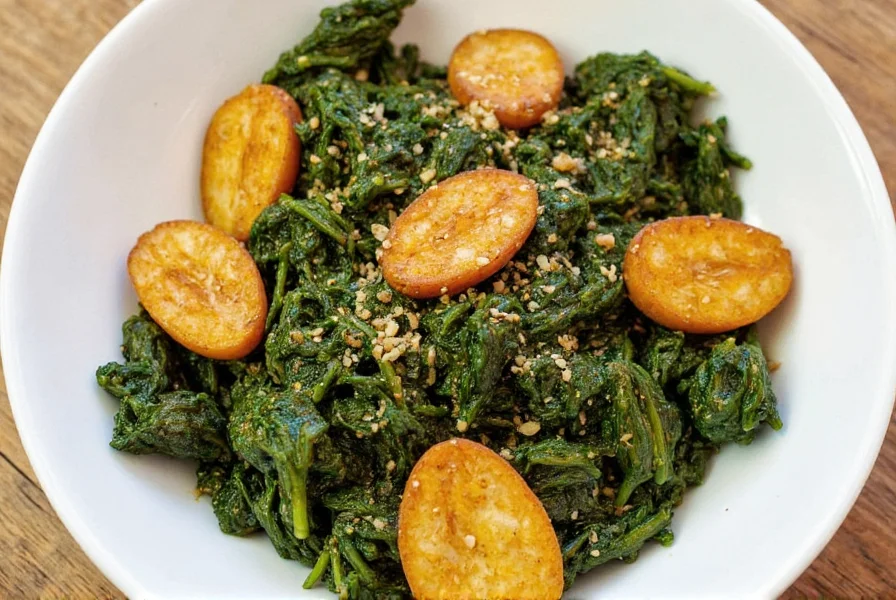
Why Spices Matter for Bitterness Control
Collard greens naturally contain compounds that cause bitterness. The right spices don't just add flavor—they actively neutralize bitterness, balance textures, and enhance natural sweetness. Salt reduces bitterness perception, acids like vinegar cut through harsh notes, and sweet elements like molasses counteract bitterness chemically. This is why timing matters: adding certain spices early builds depth, while others added late preserve freshness.
7 Expert Spice Hacks to Reduce Bitterness and Boost Flavor
1. Add Vinegar Early to Neutralize Bitterness
Add 1-2 tablespoons of apple cider vinegar or white wine vinegar during the first 15 minutes of cooking. Acids break down bitter compounds and balance the greens' natural harshness. Never add vinegar at the end—it needs time to react with the greens.
2. Use Sugar or Molasses to Balance Bitterness
Add 1/2 teaspoon of brown sugar or 1 tablespoon of molasses during the initial cooking phase. Sugar doesn't make greens sweet; it chemically neutralizes bitterness. Molasses adds depth and smokiness while counteracting harsh notes.
3. Layer Dry Spices Early for Flavor Depth
Add paprika, mustard powder, and bay leaf at the start of cooking. These dry spices release oils slowly, building a flavor foundation that masks bitterness. Mustard powder is especially effective—it cuts bitterness while adding umami.
4. Toast Whole Spices Before Using
Toast coriander seeds or black peppercorns in a dry pan for 2-3 minutes until fragrant. This releases essential oils that enhance flavor without bitterness. Grind immediately after toasting for maximum potency.
5. Replace Salt with Soy Sauce for Umami
Use 1-2 tablespoons of soy sauce instead of salt. Soy sauce provides saltiness plus glutamates that suppress bitterness perception. For vegan options, use tamari or coconut aminos.
| Substitute | Quantity per 4 cups collards | Best For |
|---|---|---|
| Soy Sauce | 1-2 tbsp | Vegan or Asian-inspired dishes |
| Worcestershire | 1 tbsp | Classic Southern braises |
6. Add Smoked Paprika for BBQ-Style Flavor
Swap regular paprika for smoked paprika (1-2 teaspoons). The smokiness masks bitterness and adds complexity without needing actual smoke. Add it early for maximum flavor integration.
7. Finish with Fresh Herbs for Brightness
Stir in 2 tablespoons of chopped parsley or thyme in the last 5 minutes of cooking. Fresh herbs add brightness that counteracts lingering bitterness without overpowering the dish.
| Herb | Flavor Profile | Best Used |
|---|---|---|
| Parsley | Grassy, clean | Right before serving |
| Thyme | Earthy, minty | Last 5 minutes of cook time |
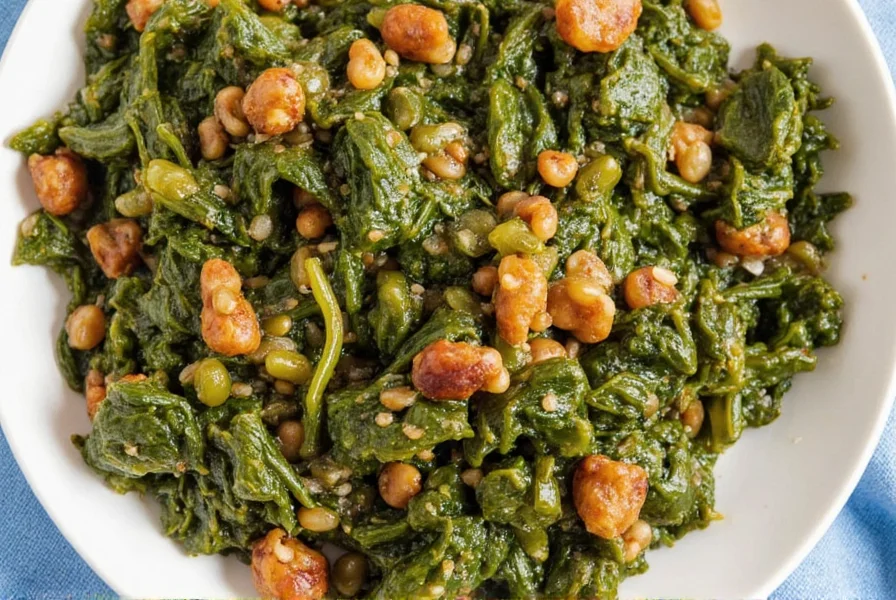
Smart Spice Storage Tips
Spices lose potency quickly. Store them in airtight glass jars in a cool, dark pantry. Label jars with purchase dates—most spices last 6-12 months. Avoid storing near heat sources like stoves.
| Storage Method | Pros | Cons |
|---|---|---|
| Glass Jars | See-through, easy access | Can fade if exposed to light |
| Plastic Containers | Budget-friendly | Not always air-tight |
| Metal Tins | Dark, durable | Opaque, hard to tell contents |
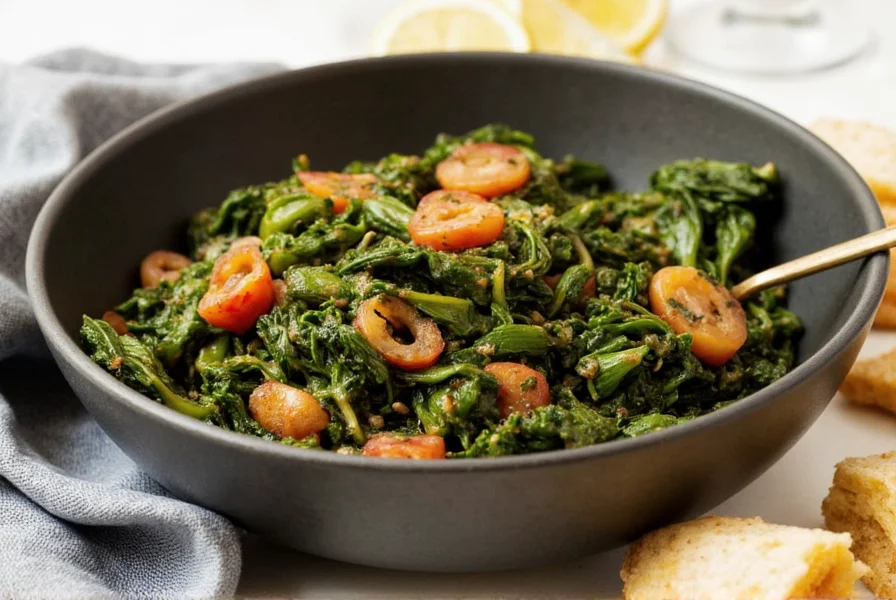
Frequently Asked Questions
How long should I braise collard greens to reduce bitterness?
Braise for 45-60 minutes minimum. Start checking at 45 minutes—greens are done when tender but still hold shape. Add vinegar and sugar early (first 15 minutes) for maximum bitterness reduction. If using smoked meat, add it at the beginning; for vegan versions, add spices gradually during cooking.
What's the #1 spice to eliminate collard green bitterness?
Apple cider vinegar is the most effective single spice for bitterness control. Add 1-2 tablespoons during the first 15 minutes of cooking. It chemically breaks down bitter compounds while adding brightness. Mustard powder is a close second—it cuts bitterness and adds umami depth.
Can I fix over-seasoned collard greens?
Yes: For too much salt, add a peeled potato (remove after 15 minutes) or dilute with unsalted broth. For too much vinegar, add 1/2 teaspoon of sugar. For overpowering spices, add more greens or a splash of cream (if not vegan). Always under-season slightly if making leftovers—flavors intensify over time.
What vegan substitutes work for smoked meat in collard greens?
Use 1 teaspoon smoked paprika + 1 tablespoon soy sauce for smoky umami. For deeper flavor, add 1/2 teaspoon liquid smoke (use sparingly) or a piece of smoked wood chip wrapped in cheesecloth. Mushroom broth also adds richness without meat.
Conclusion
Collard greens don't have to be bitter. By using vinegar early, balancing with sugar, layering dry spices, and finishing with fresh herbs, you'll transform them into a rich, flavorful dish. These techniques work for both meat-based and vegan recipes—no special skills required. Try them next time for restaurant-quality collard greens at home.
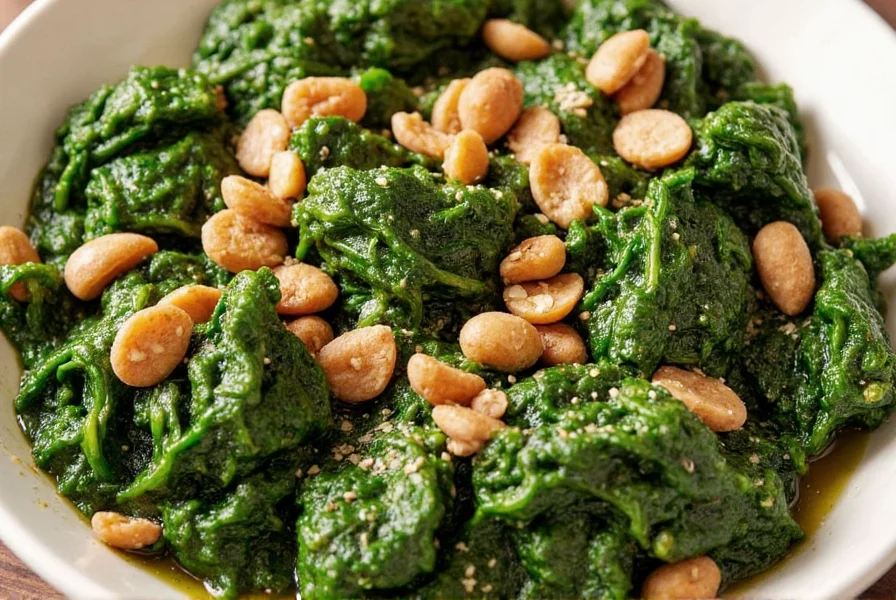

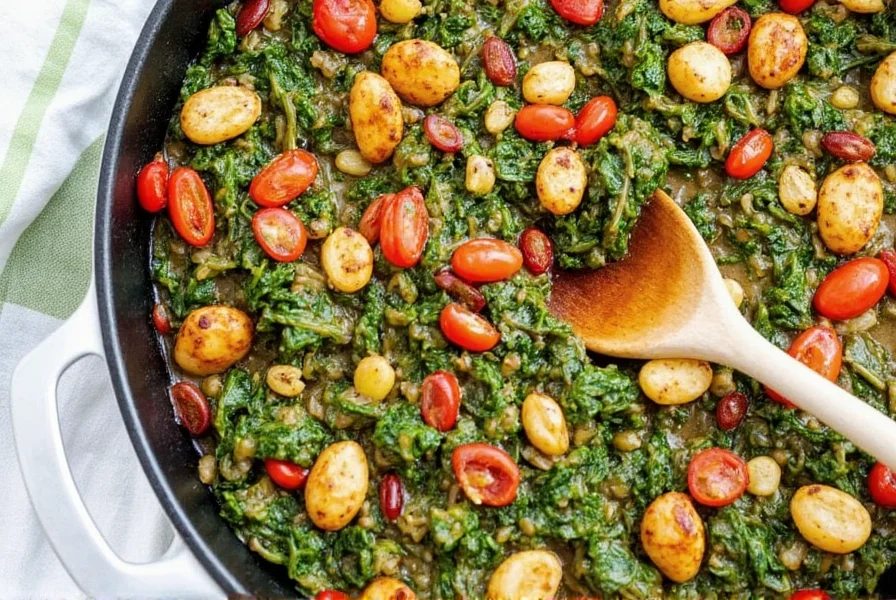









 浙公网安备
33010002000092号
浙公网安备
33010002000092号 浙B2-20120091-4
浙B2-20120091-4